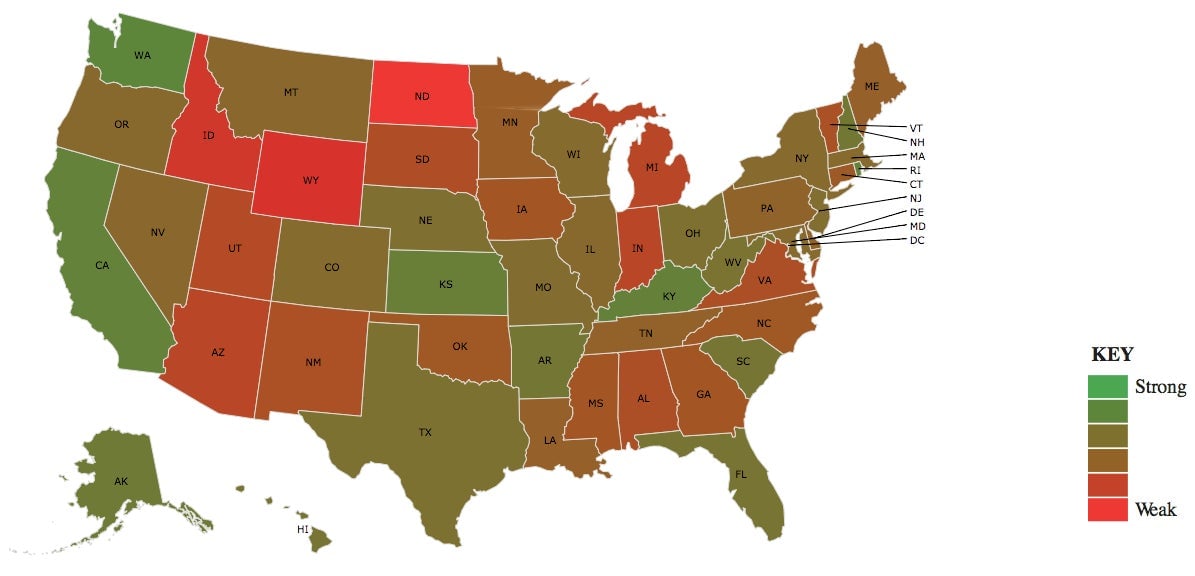Which US state is most corruption-prone? Look away, North Dakota
The US public has spent the past two years riveted by high-level corruption scandals and allegations in Washington, DC. They should also be looking closer to home, according to a new report by anti-corruption NGO Coalition for Integrity.


The US public has spent the past two years riveted by high-level corruption scandals and allegations in Washington, DC. They should also be looking closer to home, according to a new report by anti-corruption NGO Coalition for Integrity.
The NGO graded all 50 states plus Washington, DC, on the strength of their anti-corruption laws and regulations, and found that only sixteen got a passing grade of 60% or more. North Dakota came in last with 0% and Wyoming behind it at 12%.
Both states have some draft measures on the horizon. However, at present, North Dakota doesn’t have any rules against officials accepting gifts of any size from lobbyist. It also has no ethics commission; doesn’t require that outside entities like Political Action Committees disclose their contributors; and doesn’t ask sitting lawmakers to file any financial disclosures.
In contrast, Washington and California come out on top, with scores of 78% and 75%, respectively.
“I didn’t expect to see states scoring so poorly,” said Shruti Shah, CEO of Coalition for Integrity, formerly Transparency USA. “There is a strong link between an ethics regime and trust in government—and state laws are the first line of defense against corruption.”
The report, named the S.W.A.M.P. Index, grades each state according to how its corruption and ethics framework hold up to eight questions, focused on: whether they have an ethics enforcement agency (and whether it has any teeth); rules around giving gifts to officials; campaign finance reporting requirements for entities like PACs; and officials’ personal finance reporting requirements. Most weight was given to the strength of enforcement and the rules surrounding gifts.
It’s particularly important to focus on local corruption and ethics in today’s political environment, marked by deadlocks in Congress and distrust in federal government, Shah said. Gallup polls show that voters consistently rate their trust in local government higher than federal, and a 2016 poll shows citizens prefer that power be concentrated at the state level.
Read the full results below, with more details here: